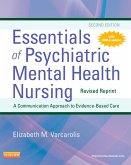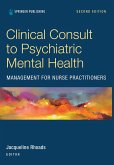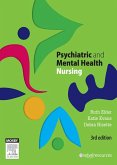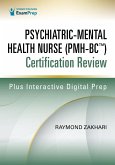Safety and risk assessment protocols are meticulously detailed, guiding nurses in conducting thorough assessments to identify potential risks and implementing tailored safety protocols and crisis prevention strategies to ensure patient well-being.
A deep dive into medication management covers the knowledge of psychotropic medications, emphasizing the importance of monitoring safety and efficacy in psychiatric nursing practice. Nurses are equipped to educate patients and caregivers on disorder-specific medication adherence and potential interactions.
Holistic assessment practices encompass evaluating physical health concerns, mental status, cognitive functioning, social supports, and cultural considerations, ensuring comprehensive care planning that respects patients' spiritual beliefs and cultural backgrounds.
Psychoeducation strategies empower nurses to provide disorder-specific education to patients and families, explaining therapeutic options and teaching coping strategies and stress management techniques tailored to individual disorders.
Building therapeutic relationships forms a cornerstone of effective care, with techniques for communication, conflict resolution, and addressing ethical boundaries specific to nurse-patient relationships.
In crisis intervention, nurses learn to recognize signs of acute episodes, implement de-escalation techniques, and collaborate with interdisciplinary teams for immediate support and stabilization during critical moments.
Promotion of self-care emphasizes educating patients on personalized self-care practices, developing wellness plans, and facilitating access to community resources and support networks tailored to individual disorder needs.
Advocacy efforts focus on championing disorder-specific rights within the healthcare system, addressing stigma, and supporting patients in navigating healthcare policies and services.
Collaborative care approaches underscore the importance of interdisciplinary collaboration in developing holistic care plans, participating in team meetings, and case conferences to ensure integrated and effective patient care.
This guide serves as an invaluable resource for psychiatric nurses dedicated to delivering compassionate, evidence-based care, empowering them to navigate the complexities of mental health nursing with skill, empathy, and professional integrity.
Dieser Download kann aus rechtlichen Gründen nur mit Rechnungsadresse in A, B, CY, CZ, D, DK, EW, E, FIN, F, GR, H, IRL, I, LT, L, LR, M, NL, PL, P, R, S, SLO, SK ausgeliefert werden.









